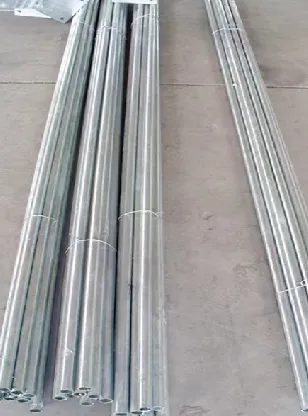loading...
- No. 9, Xingyuan South Street, Dongwaihuan Road, Zaoqiang County, Hengshui, Hebei, China
- admin@zjcomposites.com
- +86 15097380338
- Welcome to visit our website!
Advantages and Applications of Fiberglass Grating in Modern Construction and Industry
Understanding Fiberglass Grating A Comprehensive Overview
Fiberglass grating is an innovatively designed material that has transformed various industries due to its unique properties and advantages. Composed primarily of reinforced plastic, fiberglass grating combines strength and lightweight characteristics, making it a preferred choice in diverse applications ranging from industrial facilities to architectural projects.
One of the most notable features of fiberglass grating is its high corrosion resistance. Unlike traditional materials such as steel or wood, fiberglass does not rust or corrode when exposed to harsh chemicals, extreme weather conditions, or natural elements. This makes it an ideal solution for environments like chemical plants, wastewater treatment facilities, and coastal areas where saltwater can deteriorate conventional materials.
Furthermore, fiberglass grating is non-conductive, ensuring safety in environments with electrical hazards. Its insulating properties make it suitable for use in electrical substations, laboratories, and other locations where electricity and moisture may coexist. This characteristic not only protects workers but also enhances the durability of the grating itself.
fiberglass grating

Lightweight yet sturdy, fiberglass grating is easier to install compared to heavier alternatives. This ease of installation can lead to significant labor cost savings and reduced downtime during deployment. The material is available in various sizes, colors, and styles, allowing for customization to meet specific aesthetic and functional requirements.
Another advantage of fiberglass grating is its slip-resistant surface, which provides excellent traction even in wet conditions. This characteristic enhances workplace safety, reducing the risk of slips and falls, particularly in industrial settings.
Despite its myriad benefits, it is essential to consider certain factors when selecting fiberglass grating. While it offers impressive strength-to-weight ratios, it may not be suitable for all load-bearing applications. Choosing the appropriate type and specification for the intended use is critical.
In conclusion, fiberglass grating is a versatile and durable solution with a wide range of applications across various industries. Its resistance to corrosion, lightweight nature, electrical insulation properties, and slip resistance make it a valuable choice for enhancing safety and efficiency in both industrial and commercial environments. As technology continues to evolve, the potential applications and innovations surrounding fiberglass grating are likely to expand, solidifying its position as a fundamental component in modern construction and design.
-
Transform Your Spaces with FRP Grating SolutionsNewsNov.04,2024
-
The Versatility and Strength of FRP RodsNewsNov.04,2024
-
The Excellence of Fiberglass Water TanksNewsNov.04,2024
-
The Benefits of FRP Grating for Your ProjectsNewsNov.04,2024
-
Elevate Your Efficiency with FRP Pressure VesselsNewsNov.04,2024
-
Welcome to the World of FRP Pressure VesselsNewsOct.12,2024
-
Unveiling the Future of Filtration: Why FRP Filter Vessels are a Game ChangerNewsOct.12,2024
